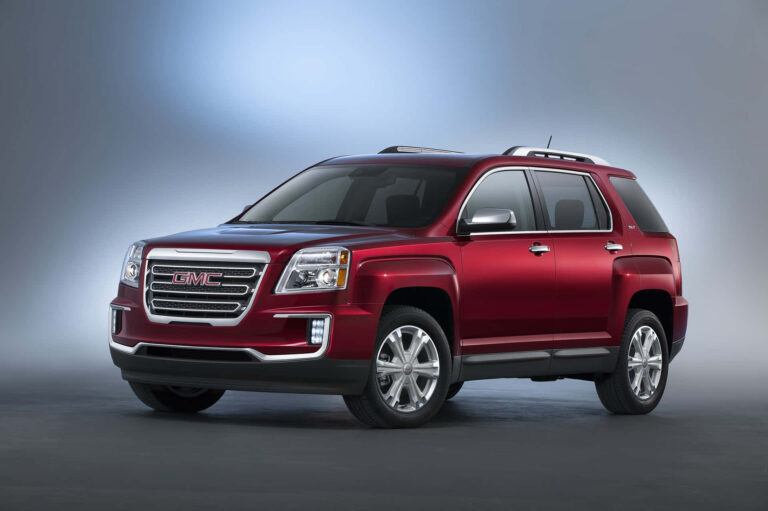1 Ton Dodge Diesel Trucks For Sale: Your Ultimate Guide to a Heavy-Duty Powerhouse
1 Ton Dodge Diesel Trucks For Sale: Your Ultimate Guide to a Heavy-Duty Powerhouse cars.truckstrend.com
Introduction: The Unyielding Power of the 1-Ton Dodge Diesel
When the conversation turns to heavy-duty trucks, few names evoke as much respect and admiration as the 1-ton Dodge Diesel. More specifically, we’re talking about the formidable Ram 3500 series, a line of trucks synonymous with raw power, relentless durability, and the legendary Cummins diesel engine. For decades, these workhorses have been the backbone of countless businesses, the reliable hauler for RV enthusiasts, and the preferred choice for anyone needing to move substantial loads with confidence and efficiency.
1 Ton Dodge Diesel Trucks For Sale: Your Ultimate Guide to a Heavy-Duty Powerhouse
The allure of a 1-ton Dodge Diesel truck for sale isn’t just about its impressive towing and hauling capacities; it’s about investing in a legacy of engineering excellence. The partnership between Dodge (now Ram) and Cummins has produced a vehicle renowned for its longevity, strong resale value, and the ability to conquer tasks that would leave lesser trucks struggling. Whether you’re a contractor needing to pull heavy equipment, a farmer transporting livestock, or an adventurer planning cross-country trips with a large fifth-wheel, a 1-ton Dodge Diesel is often the answer. This comprehensive guide will delve into everything you need to know about finding, evaluating, and owning one of these remarkable machines.
Understanding the 1-Ton Dodge Diesel Legacy: The Cummins Powerhouse
At the heart of every 1-ton Dodge Diesel truck lies the venerable Cummins engine, a name that has become almost interchangeable with reliability and immense torque. The collaboration began in 1989, and since then, the Cummins B-series and ISB engines have powered millions of Dodge/Ram trucks, cementing their reputation as the go-to choice for serious work.
The Cummins engine is revered for its robust construction, low-end torque delivery, and incredible longevity. Unlike many competitors, Cummins engines were designed from the ground up as a heavy-duty diesel, not a converted gasoline block. This inherent strength allows them to consistently rack up hundreds of thousands of miles, often exceeding 500,000 with proper maintenance.
Over the years, the Cummins engine in 1-ton Dodge trucks has evolved through several iterations, each bringing improvements in power, efficiency, and emissions compliance:
- 1st Generation (1989-1993): Featured the mechanical 5.9L 12-valve Cummins. Known for its simplicity and ruggedness, often referred to as "bulletproof."
- 2nd Generation (1994-2002): Introduced the redesigned Ram body style. Early models continued with the 12-valve, while later models (1998.5-2002) switched to the 24-valve, electronically controlled engine, offering more power but with some known fuel system quirks.
- 3rd Generation (2003-2009): Ushered in the common-rail fuel injection system for both the 5.9L (2003-2007) and later the 6.7L (2007.5-2009) Cummins. These engines offered significant power increases and refinement. The 6.7L introduced emissions equipment like the Diesel Particulate Filter (DPF) and Exhaust Gas Recirculation (EGR).
- 4th Generation (2010-2018): Further refined the 6.7L Cummins, with continuous improvements to emissions systems, power output, and the introduction of the heavy-duty Aisin automatic transmission option.
- 5th Generation (2019-Present): Represents the pinnacle of Cummins power in a Ram truck, with higher output versions, greater towing capacities, and advanced technology.

Each generation has its unique characteristics, benefits, and considerations, making it crucial to understand which era best suits your needs and budget when looking for a 1-ton Dodge Diesel for sale.
Key Benefits of Owning a 1-Ton Dodge Diesel
The decision to purchase a 1-ton Dodge Diesel truck is often driven by a specific set of advantages that these vehicles offer:
Unrivaled Towing and Hauling Capacity
This is arguably the primary reason people opt for a 1-ton. With a robust frame, heavy-duty axles, and the Cummins engine’s immense torque, these trucks can pull enormous loads. Modern Ram 3500s can tow upwards of 37,000 pounds (with proper configuration), making them ideal for large RVs, heavy equipment trailers, and multi-car haulers. Their payload capacity also allows for significant weight in the bed, perfect for slide-in campers or heavy tools.
Exceptional Durability and Longevity
Cummins engines are famous for their ability to withstand hundreds of thousands of miles of heavy use. It’s not uncommon to find these trucks with 300,000, 400,000, or even 500,000 miles on the odometer and still running strong, a testament to their robust design and build quality.
Strong Resale Value
Thanks to the Cummins engine’s reputation for longevity and the trucks’ enduring utility, 1-ton Dodge Diesels tend to hold their value exceptionally well. This makes them a wise investment, as you’re likely to recoup a significant portion of your purchase price if you decide to sell in the future.
Fuel Efficiency (for its class)
While no heavy-duty truck will be a fuel sipper, diesel engines are inherently more fuel-efficient than gasoline counterparts, especially when under load. The higher energy density of diesel fuel and the engine’s design mean you can travel further on a tank, which is a significant advantage for long hauls or frequent towing.
Aftermarket Support and Customization
The popularity of 1-ton Dodge Diesels has fostered a massive aftermarket industry. From performance upgrades (tuners, exhaust, turbos) to suspension enhancements (lift kits, airbags), braking improvements, and cosmetic modifications, virtually any part or accessory you can imagine is available, allowing owners to tailor their truck to their exact specifications.
Navigating the Market: What to Look for When Buying
Purchasing a used 1-ton Dodge Diesel requires careful consideration. Here’s a breakdown of what to scrutinize:
Mileage and Condition
While Cummins engines are known for high mileage, always prioritize a truck with documented, consistent maintenance. High mileage on a well-maintained diesel is often less concerning than low mileage on a neglected one. Inspect the frame for rust, especially in colder climates. Check the body for excessive dents, dings, and signs of accident repair. The interior should reflect reasonable wear for its age and mileage.
Maintenance Records
This is paramount. Look for records of regular oil changes (using diesel-specific oil), fuel filter replacements, transmission fluid services, and cooling system flushes. Neglected maintenance can lead to costly repairs down the line.
Transmission Type
Dodge/Ram 3500s have been offered with both manual and automatic transmissions.
- Manual: NV4500, NV5600, G56. Known for durability, good for heavy towing, but can be less convenient in traffic.
- Automatic: 47RH/RE, 48RE, 68RFE, Aisin. Earlier automatics (47/48RE) may require upgrades for sustained heavy towing, while the later 68RFE and especially the Aisin are robust. Test for smooth shifts and no slipping.
Common Issues to Inspect
Each generation has its known quirks:
- 12-valve (1st/2nd Gen): Killer Dowel Pin (KDP) – a small pin that can fall out and cause catastrophic engine damage. Many have been fixed. Check if this preventative maintenance has been done.
- 24-valve (2nd Gen): VP44 injection pump failure, lift pump issues. Ensure these have been replaced or upgraded.
- Common Rail (3rd/4th Gen): Injector issues (especially on 5.9L), turbo actuator problems, EGR/DPF issues on 6.7L models. Check for "deleted" trucks (emissions equipment removed) – these offer performance benefits but may be illegal for road use in some states and can complicate resale.
- All Generations: Front end components (ball joints, tie rods) wear out faster due to heavy diesel engine weight. Check for play in the steering.
Usage History
Was the truck primarily a work vehicle, a recreational hauler, or a daily driver? A truck used for heavy hauling will likely have more wear on the drivetrain and suspension, but if properly maintained, it’s not necessarily a deal-breaker.
The Buying Process: Tips for a Smooth Transaction
Once you’ve identified a potential candidate, follow these steps:
- Set a Realistic Budget: Factor in not just the purchase price, but also potential immediate repairs, registration, insurance, and ongoing fuel costs. Diesel fuel is generally more expensive than gasoline.
- Pre-Purchase Inspection (PPI): This is non-negotiable for a used diesel truck. Have an independent, reputable diesel mechanic (preferably one familiar with Cummins engines) inspect the truck thoroughly. They can identify hidden issues that might cost thousands to repair.
- Test Drive Thoroughly: Drive the truck on various roads, including highways, city streets, and if possible, with a load. Listen for unusual noises from the engine, transmission, and drivetrain. Check all lights, gauges, HVAC, and power accessories.
- Check VIN and Use the VIN to run a vehicle history report (e.g., CarFax, AutoCheck) to check for accidents, flood damage, salvage titles, or outstanding liens. Ensure the title is clear.
- Negotiate Wisely: Be prepared to negotiate based on your inspection findings and market research. Don’t be afraid to walk away if the deal doesn’t feel right.
Ownership and Maintenance Considerations
Owning a 1-ton Dodge Diesel is a commitment, but a rewarding one. Here’s what to expect:
- Regular, Specific Maintenance: Diesel engines require specific maintenance routines, including more frequent fuel filter changes, larger oil capacities, and specialized fluids. Adhere strictly to the manufacturer’s recommended service intervals.
- Fuel Quality: Always use high-quality diesel fuel from reputable stations. Consider using a diesel fuel additive, especially in colder climates, to prevent gelling and improve lubricity.
- DEF System (for newer models): Trucks from 2013 onwards typically require Diesel Exhaust Fluid (DEF). Ensure you understand its consumption and refilling process.
- Aftermarket Upgrades: Many owners choose to upgrade their trucks for improved performance, towing, or longevity. Research reputable brands and ensure any modifications are done professionally.
1 Ton Dodge Diesel Trucks For Sale: Estimated Price Ranges
Prices for 1-ton Dodge Diesel trucks vary significantly based on year, mileage, condition, trim level, transmission, 2WD/4WD, and geographical location. The table below provides estimated ranges for well-maintained examples.
| Generation (Years) | Engine Type (Key Features) | Typical Price Range (USD) – Good Condition | Notes on Price Factors |
|---|---|---|---|
| 1st Gen (1989-1993) | 5.9L 12-Valve Cummins (Mechanical) | $8,000 – $25,000+ | Highly sought-after by enthusiasts, condition dependent. Rust, especially on the body and frame, is a major factor. Collectors may pay more for pristine examples. |
| 2nd Gen (1994-2002) | 5.9L 12-Valve (94-98), 5.9L 24-Valve (98.5-02) | $10,000 – $35,000+ | 12-valve models generally command higher prices due to simplicity. 24-valve prices can be affected by VP44 pump history. Rust on body/frame is common. |
| 3rd Gen (2003-2007) | 5.9L Common Rail Cummins (No DEF) | $15,000 – $40,000+ | Very popular due to strong power and no complex emissions equipment. Injector health is crucial. |
| 3rd Gen (2007.5-2009) | 6.7L Common Rail Cummins (DPF, EGR) | $18,000 – $45,000+ | Early emissions equipment can be problematic; "deleted" trucks common but may have legal implications. |
| 4th Gen (2010-2018) | 6.7L Common Rail Cummins (Improved Emissions, Aisin option) | $25,000 – $60,000+ | More refined, higher towing capacities. Aisin transmission adds value. Price depends heavily on trim and mileage. |
| 5th Gen (2019-Present) | 6.7L High Output Cummins (Latest Tech, highest capacities) | $45,000 – $90,000+ | Cutting-edge technology, most comfortable interiors, highest towing and payload. Price reflects modern features and lower mileage. |
Disclaimer: These ranges are estimates for trucks in good, running condition with reasonable mileage for their age. Prices can be significantly lower for trucks needing major repairs or higher for exceptionally clean, low-mileage, or highly customized examples. Always conduct thorough research and a pre-purchase inspection.
Frequently Asked Questions (FAQ) about 1-Ton Dodge Diesel Trucks For Sale
Q1: What’s the "best" year for a 1-ton Dodge Diesel?
A1: There’s no single "best" year, as it depends on your priorities.
- For simplicity and extreme durability: 1989-1998 12-valve 5.9L Cummins.
- For a balance of power, no DEF, and modern comfort: 2003-2007 5.9L Common Rail Cummins.
- For maximum towing capacity, comfort, and latest tech: 2010-Present 6.7L Cummins (4th and 5th Gen).
Q2: Are high-mileage Cummins trucks reliable?
A2: Absolutely, if they’ve been well-maintained. It’s common for Cummins engines to reach 300,000, 400,000, or even 500,000 miles. Always prioritize documented maintenance over low mileage alone.
Q3: What is the "Killer Dowel Pin" (KDP) and should I be concerned?
A3: The KDP is a small steel pin in the timing case of 12-valve Cummins engines (1989-1998) that can back out and cause catastrophic engine damage. Many trucks have had the KDP "tabbed" or fixed as preventative maintenance. If buying a 12-valve, ask if this has been addressed.
Q4: What are the common problems with 24-valve Cummins (1998.5-2002)?
A4: The primary concerns are the VP44 injection pump and the factory lift pump. Failures of these components are common but can be mitigated with aftermarket upgrades.
Q5: Should I buy a "deleted" truck?
A5: A "deleted" truck has had its emissions equipment (DPF, EGR, DEF system) removed. Pros include better fuel economy and more power. Cons include being illegal for road use in many states, potential difficulty passing inspections, voided warranties (if applicable), and potentially harder resale. Understand the legal implications in your area before considering one.
Q6: How much can a 1-ton Dodge Diesel typically tow?
A6: Towing capacity varies significantly by year, engine, transmission, axle ratio, and whether it’s 2WD or 4WD. Older models might tow 10,000-15,000 lbs, while modern 5th Gen Ram 3500s can tow upwards of 37,000 lbs with the high-output Cummins and Aisin transmission. Always check the specific truck’s Gross Combined Weight Rating (GCWR) and Gross Vehicle Weight Rating (GVWR).
Q7: What kind of fuel economy can I expect?
A7: Fuel economy for 1-ton diesel trucks varies greatly based on driving style, load, and terrain. Expect anywhere from 12-16 MPG in city driving, and 15-20 MPG on the highway when unloaded. Towing heavy loads will significantly reduce these figures.
Conclusion: The Enduring Value of a 1-Ton Dodge Diesel
A 1-ton Dodge Diesel truck, particularly one powered by the legendary Cummins engine, represents a formidable investment for anyone needing serious towing and hauling capabilities. Its reputation for durability, power, and longevity is well-earned, making it a highly sought-after vehicle in the used truck market.
While the upfront cost and maintenance requirements can be higher than a gasoline counterpart, the long-term benefits—including lower operating costs when loaded, exceptional reliability, and strong resale value—often outweigh these considerations. By understanding the different generations, knowing what to inspect, and diligently following the buying process, you can confidently find a 1-ton Dodge Diesel for sale that will serve as a powerful, dependable workhorse for many years to come. Choose wisely, maintain it diligently, and you’ll experience firsthand why these trucks have earned their legendary status.




